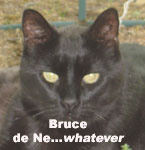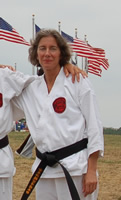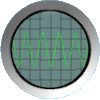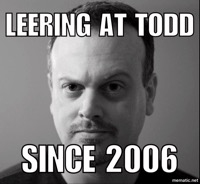| View previous topic :: View next topic |
| Author |
Message |
Bruce
Boardmeister

Joined: 06 Jun 2005
Posts: 7980
Location: Portland, OR
|
 Posted: Mon Nov 02, 2009 11:45 am Post subject: Sound Treatment Blankets Posted: Mon Nov 02, 2009 11:45 am Post subject: Sound Treatment Blankets |
 |
|
I saw this in Critique and thought it was too good to languish there. A moving blanket maker has seen an opportunity to appeal to people who record audio and may have a winner here:
http://moverssupplies.com/Custom-Blankets-Sound-Blanket/Moving-Blanket-for-soundproofing-Producer-Choice/
B
_________________
VO-BB Member #31 Enlisted June, 2005

I'm not a Zoo, but over the years I've played one on radio/TV. .
Last edited by Bruce on Mon Nov 02, 2009 5:21 pm; edited 1 time in total |
|
| Back to top |
|
 |
Don G.
King's Row

Joined: 11 Nov 2004
Posts: 1071
Location: MA
|
 Posted: Mon Nov 02, 2009 12:57 pm Post subject: Posted: Mon Nov 02, 2009 12:57 pm Post subject: |
 |
|
| I saw it in the Critique section, too. Good idea to move it. I got caught up in the moment and ordered one of the oversized ones. I know it won't do much for actual soundproofing, but it'll help cut down some incidental noise. I'm also looking at it as a nice big "Keep it down, please. I'm recording" hint for anyone inclined to plod heavy-footed down the hallway. |
|
| Back to top |
|
 |
Lizden
A Zillion

Joined: 04 Dec 2006
Posts: 8864
Location: The dark recesses of my mind
|
 Posted: Mon Nov 02, 2009 1:01 pm Post subject: Posted: Mon Nov 02, 2009 1:01 pm Post subject: |
 |
|
THAT is entrepreneurial thinking!
_________________
Liz de Nesnera O.A.V. ~ Livin' The VO Dream!
English/French Bilingual VO w/ ISDN
HireLiz.com / liz@hireliz.com |
|
| Back to top |
|
 |
mcm
Smart Kitteh

Joined: 10 Dec 2004
Posts: 2600
Location: w. MA, USA
|
 Posted: Mon Nov 02, 2009 1:08 pm Post subject: Posted: Mon Nov 02, 2009 1:08 pm Post subject: |
 |
|
| Three cheers to Peter Katt!!! |
|
| Back to top |
|
 |
bobsouer
Frequent Flyer

Joined: 15 Jul 2006
Posts: 9883
Location: Pittsburgh, PA
|
 Posted: Mon Nov 02, 2009 1:33 pm Post subject: Posted: Mon Nov 02, 2009 1:33 pm Post subject: |
 |
|
Hip! Hip! Hooray!
_________________
Be well,
Bob Souer (just think of lemons)
The second nicest guy in voiceover.
+1-724-613-2749
Source Connect, phone patch, pony express |
|
| Back to top |
|
 |
Mike Sommer
A Hundred Dozen

Joined: 05 May 2008
Posts: 1222
Location: Boss Angeles
|
 Posted: Mon Nov 02, 2009 1:40 pm Post subject: Posted: Mon Nov 02, 2009 1:40 pm Post subject: |
 |
|
Blankets are a good way to mould or manipulate a rooms sound, but blankets alone can not treat a room.
One thing in their description, they mention the capabilities of "sound proofing" with cotton blankets.
Sorry folks blankets can not sound proof. In order to sound proof one needs mass and or distance. With a two leaf wall system one can only expect STC levels of 55-60, where an 8" block wall can only offer 50 - 55. But add 5/8" of drywall, decoupling and 1" of air space, and you can get 60-55 STC from that block wall. Point is, it take a lot more than a blanket to sound proof.
When treating a room broadband absorption is about the only way to do this effectively. It solves the problems of both modes and nodes in a room effectively.
Blankets will only treat light refections, and will do noting for the lower end.
If you look over the shoulder of Keith David, you'll note some blankets (blue) hung over some gobos to create a dry recording atmosphere for the particular scene they were working on. Which in this case had a very specific reverb added to the track.

Studio A - WDI in Glendale
_________________
The Blog:
http://voiceoveraudio.blogspot.com/
Acoustics are counter-intuitive. If one thing is certain about acoustics, it is that if anything seems obvious it is probably wrong.
Last edited by Mike Sommer on Tue Nov 03, 2009 2:38 am; edited 1 time in total |
|
| Back to top |
|
 |
Bill Campbell
DC

Joined: 09 Mar 2007
Posts: 621
|
 Posted: Mon Nov 02, 2009 2:01 pm Post subject: Posted: Mon Nov 02, 2009 2:01 pm Post subject: |
 |
|
Hey Mike, when they're ready to sound proof the NC Opera House, I'll have
them give you a call.

_________________
www.asapaudio.com |
|
| Back to top |
|
 |
ballenberg
Lucky 700
Joined: 10 Nov 2004
Posts: 793
Location: United States
|
 Posted: Mon Nov 02, 2009 2:57 pm Post subject: Posted: Mon Nov 02, 2009 2:57 pm Post subject: |
 |
|
It's true--offically they don't soundproof anything. And I have no idea of even a fraction of the stuff Mike talks about, standing waves, first reflections, hemholz, who knows? whatever all that stuff is.
But my first "studio" was nothing more than what my wife called my "blanket fort" in the basement. Moving blankets, lots of 'em, hung from the ceiling rafters, doubled up and totally surrounding my recording area. It sounded pretty good, too. Got lots of compliments on the sound during ISDN sessions. Never mentioned it was a blanket fort, though. |
|
| Back to top |
|
 |
Jeffrey Kafer
Assistant Zookeeper

Joined: 09 Dec 2006
Posts: 4931
Location: Location, Location!
|
 Posted: Mon Nov 02, 2009 4:15 pm Post subject: Posted: Mon Nov 02, 2009 4:15 pm Post subject: |
 |
|
I think Mike's point is simply, "stop calling it soundproofing!". Because that and sound treatment are very different things.
_________________
Jeff
http://JeffreyKafer.com
Voice-overload Web comic: http://voice-overload.com |
|
| Back to top |
|
 |
Bruce
Boardmeister

Joined: 06 Jun 2005
Posts: 7980
Location: Portland, OR
|
 Posted: Mon Nov 02, 2009 5:21 pm Post subject: Posted: Mon Nov 02, 2009 5:21 pm Post subject: |
 |
|
Yes indeed. To be more precise, how's this?:
Sound proofing is keeping unwanted sound from coming into your space, and sound treatment is keeping sound from bouncing around unpleasantly within your space.
I'll change the thread title.
B
_________________
VO-BB Member #31 Enlisted June, 2005

I'm not a Zoo, but over the years I've played one on radio/TV. . |
|
| Back to top |
|
 |
Mike Sommer
A Hundred Dozen

Joined: 05 May 2008
Posts: 1222
Location: Boss Angeles
|
 Posted: Mon Nov 02, 2009 6:55 pm Post subject: Posted: Mon Nov 02, 2009 6:55 pm Post subject: |
 |
|
RIGHT
Isolation -keeps sound out of the recording space.
Treatment -affects the sound in it.
Blankets are a good way to treat some of the ringing and early refections.
BUT it does nothing for the lower end. And it's the low end that
builds up and causes bigger problems that can't be treated by blankets.
These problems would be Nodes in the upper mids where the human voice
lives. Nodes are frequencies that are canceled, and if you cancel upper mid
frequencies you'll effectively removed intelligibility and clarity in the voice.
Thusly one finds themselves needing to move closer to the mic, this is not a
good thing either.
Bass Trapping and treatment with ridged fiberglass or rockwool are one of
the only few ways to do this effectively. Try placing 4 or 5 pieces of 2" OC
703 insulation around a room, and you will hear a dramatic and marked change.
Building a tent will kill the echos, and ringing, but because the bass is left
untreated, it becomes boomy.
If you ever have trouble understanding this stuff, ask.
_________________
The Blog:
http://voiceoveraudio.blogspot.com/
Acoustics are counter-intuitive. If one thing is certain about acoustics, it is that if anything seems obvious it is probably wrong. |
|
| Back to top |
|
 |
Jeffrey Kafer
Assistant Zookeeper

Joined: 09 Dec 2006
Posts: 4931
Location: Location, Location!
|
|
| Back to top |
|
 |
Bill Campbell
DC

Joined: 09 Mar 2007
Posts: 621
|
 Posted: Mon Nov 02, 2009 7:18 pm Post subject: Posted: Mon Nov 02, 2009 7:18 pm Post subject: |
 |
|
Mike "Mr. Science" Sommer said...
"And it's the low end that
builds up and causes bigger problems that can't be treated by blankets."
True, but the blankets and a High Pass Filter at 80hz and a 2db cut from 250-450 hz will fix most of the bass buildup.
_________________
www.asapaudio.com |
|
| Back to top |
|
 |
Ed Gambill
Cinquecento

Joined: 18 Nov 2007
Posts: 561
Location: King, NC 35mi SE of Mayberry
|
 Posted: Mon Nov 02, 2009 9:05 pm Post subject: Posted: Mon Nov 02, 2009 9:05 pm Post subject: |
 |
|
There is another use for Furni Pads. We put them on the floor of the set to keep down unwanted foot falls. That way clean dialogue can be recorded, the foot falls can be put in on the Foley Stage during post.
I noticed some one was selling clips. I just us a hole punch and die set to put in brass grommets.
They are fairly dense so from time to time I have covered windows and door to keep out unwanted sound.
I have set up a line of them to block of direct radiation of noise some thin like a refrigerator in a medical lab that could not be shut off.
When I think of Furniture Pad I think of location sound recording for film/video or back in my high school days moving furniture. That was my Saturday job.
There has only been one occasion where I used pads in an ADR session. The space we had for recording was not set up for VO. Exterior infiltrating was minimal but reflection from the wall was a problem. The best think I had with me were my Furni Pads. I hung them from the ceiling tile grid. Then I put Styrofoam cubes on the wall, which cause the pad to bulge out wherever the foam was applied. As the surface of a Furni pad is reflective, shaping the surface of the pad helped spread the sound energy giving us some diffusion.
Sky lines would have been better or quadratic panels would also been good but I only had my Furni pads. You do the best with what you have. We recorded good usable lines that were laid back in to the movie.
_________________
Esse quam videri "To be rather than to seem"
www.SaVoa.org  No. 07000 Member AES No. 07000 Member AES 
Last edited by Ed Gambill on Tue Nov 03, 2009 4:54 pm; edited 1 time in total |
|
| Back to top |
|
 |
Mike Sommer
A Hundred Dozen

Joined: 05 May 2008
Posts: 1222
Location: Boss Angeles
|
 Posted: Tue Nov 03, 2009 2:28 am Post subject: Posted: Tue Nov 03, 2009 2:28 am Post subject: |
 |
|
And Bill "Low Tech" Campbell said...
"True, but the blankets and a High Pass Filter at 80hz and a 2db cut from 250-450 hz will fix most of the bass buildup."
That would be effective if we were dealing with a single sound source.
"Sound in an enclosed space behaves fundamentally different from sound in a
free field, sound leaves the source and travels outward unimpeded. In most
enclosed spaces, sound from the source is reflected from boundary
surfaces such as walls, floor and ceiling. The resulting sound-presure level
at any point in the enclosure is a combination of direct sound and the
reflective sound. In particular, modal resonance are established; the
sound-presure level will be different at different places in the enclosed
space and will also vary according to frequency. These resonate
frequencies and the variations they create are a function of the
dimensions of the enclosed space."
1130 / (2L) =ƒ
Where:
1130 = speed of sound
L = length of room
ƒ = frequency of room length
"Most rooms are essentially containers of air. As such, they exhibit modal
resonances, preferred frequencies where energy is concentrated. Likewise,
these resonances create frequencies where energy is decreased."
Or simply put:
A room mode is the natural resonances that occur in every enclosed space,
and the frequency of each resonance is directly related to the room's
dimensions. For example, a room 16 feet long has a mode at 35 Hz because
walls that far apart provide a natural resonance at 35 Hz. Additional modes
occur at multiples of 35 Hz because those frequencies also resonate in the
same space. When you have a wall spacing that accommodates one cycle of a
35 Hz wave, it will also fit two cycles of 70 Hz, three cycles of 105 Hz, 175
Hz, 210 Hz and so forth up the spectrum. (The smaller the room, the
higher the frequency starts. Example, blow into an empty pop bottle, now
fill it with some water the resonating frequency is higher. Bottles are
basically a Helmholtz resonator)
Remember we still have the width and the hight of the room to include
into the equation too -this along with length is the Axial Mode, then there
are the Tangential and Oblique modes to deal with.
Therefore when a musical note having the same pitch as a natural
resonance of the room, that note will sound louder and have a longer decay
time than other notes. Of course, this is undesirable because some notes
are emphasized more than others, and the longer decay times reduce
clarity. Therefore, room modes are important because they directly affect
the character of a room and the sound of our recordings.
Also if there is a reflection at the same frequency that occurs in complete
opposite phase, it will create a node, thusly eliminating a frequency completely.
So even though you can pop in a Hipass filter to cut the bass, you are still
not treating or solving the effect of the ROOM. And because the problem
stretches up and down the spectrum, and you'll end up creating more
problems than you are solving by equalizing.
This is why every room needs absorption and bass traps.
Treat the problem, not the symptoms.
_________________
The Blog:
http://voiceoveraudio.blogspot.com/
Acoustics are counter-intuitive. If one thing is certain about acoustics, it is that if anything seems obvious it is probably wrong.
Last edited by Mike Sommer on Tue Nov 03, 2009 7:34 pm; edited 2 times in total |
|
| Back to top |
|
 |
|







